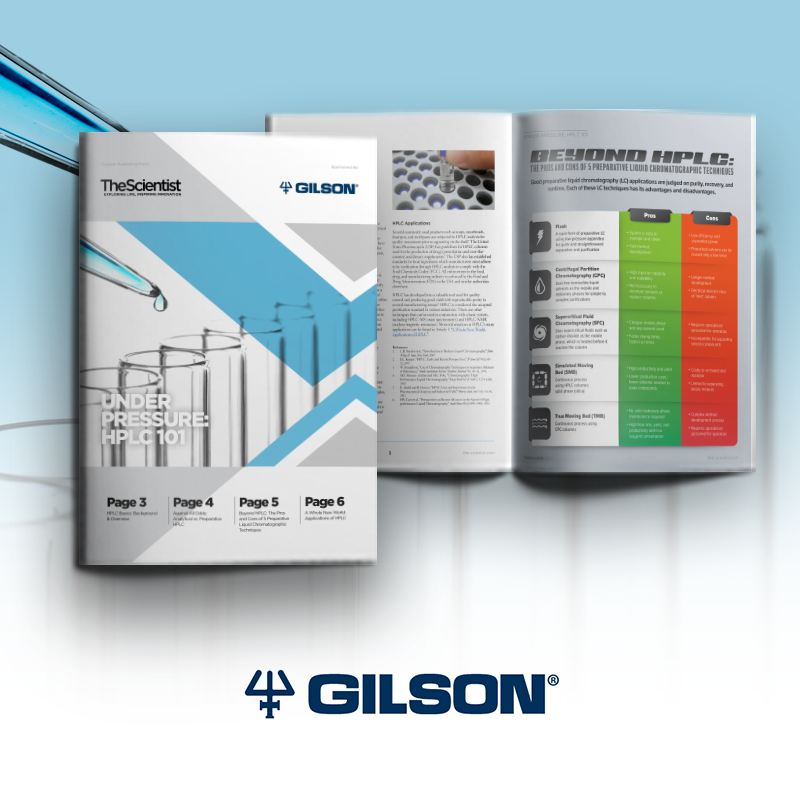
High-performance liquid chromatography (HPLC) is a popular and well-established technique commonly used in analytical chemistry. With its pumps, columns, solvents, and detectors, it enables the highly sensitive analysis, measurement, or isolation of target compounds in heterogeneous mixtures.
Advances in chromatography have established HPLC as the recognized and accepted standard for purification across several scientific and industrial environments, including research and pharmaceutical settings. Other techniques can also be used in conjunction with basic HPLC systems, including HPLC-MS (mass spectrometry) and HPLC-NMR (nuclear magnetic resonance).
Download this eBook from The Scientist and Gilson to find out more about:
• The basics of HPLC
• The difference between analytical and preparative HPLC
• The pros and cons of different preparative HPLC techniques
• The wide range of applications of HPLC
Interested in reading more?




